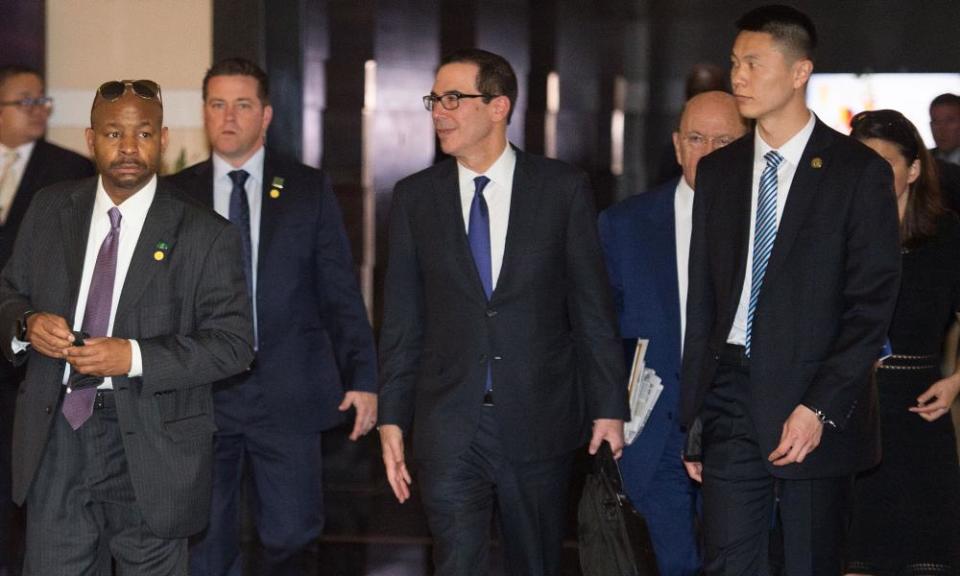US-China talks end in increased tension and demand for $200bn trade deficit cut
Talks in Beijing between Steven Mnuchin and Liu He end in ‘significant disagreements over certain issues’

Tensions between the US and China increased on Friday as it emerged US officials had handed Beijing a list of demands including a $200bn cut in its trade deficit and an end to state subsidies on strategic industries.
The two days of talks in Beijing between Steven Mnuchin, the US treasury secretary, and Liu He, the vice-premier, ended on Friday after weeks of escalating rhetoric between the two nations.
A statement released by the official Xinhua news agency described the talks as “frank, efficient and constructive” but added that there remained “significant disagreements over certain issues”.
No joint statement was released and according to The Wall Street Journal the Chinese too made demands - calling on the US to stop threatening to impose $150bn in tariffs on imports and ease national-security reviews of Chinese investments.
A document handed to Chinese officials described the trade relationship between the two countries as “significantly imbalanced”. The US’s trade and services deficit with China was $337bn last year, according to US data, and the Trump administration is pushing for a $200bn cut in that deficit by 2020.
Such a cut would double Donald Trump’s previous calls for a $100bn cut. On the campaign trail and in office Trump has repeatedly attacked China’s trade policies, accusing the country of “raping” the US with its policies.
The US also called for China to immediately stop providing subsidies to certain industries. China must end some of its policies related to technology transfers, where foreign companies are forced to hand over key technologies in exchange for access to China, a key source of tension underlying the dispute, the list says.
Mnuchin also wanted assurances that China would not to retaliate against US measures currently being pursued against it. For instance, the US says China should agree not to target US farmers or agricultural products, and “not oppose, challenge or otherwise retaliate” when the US moves to restrict Chinese investment in the US in sensitive sectors.
China has already announced tariffs on some US agricultural goods and threatened to others.
Analysts said the Chinese were likely to view the aggressive posture struck by the US as unreasonable and akin to bullying, potentially making it difficult to tone down friction over such issues.
Yu Miaojie, professor at Peking University’s National School of Development, described some of the demands as “like lions opening their mouths”.
“When it comes to negotiations, both sides can provide a list of requests and we will seek common ground while reserving our differences,” Yu said. “If one side provides a list with unreasonable requests, the Chinese government is unable to accept it.”
The trade talks come as the Trump administration is pursuing an increasingly aggressive line on trade. It has imposed tariffs on steel and aluminum imports and threatened to pull out of the North American Free Trade Agreement (Nafta).
On Thursday over 1,000 economists – including 14 Nobel laureates – wrote to Trump warning that his hardening stance on trade threatened to repeat the mistakes the US made in the 1930s, when the Smoot-Hawley Tariff Act triggered a trade war that is widely seen as one of the catalysts for the Great Depression.
Associated Press contributed to this article

